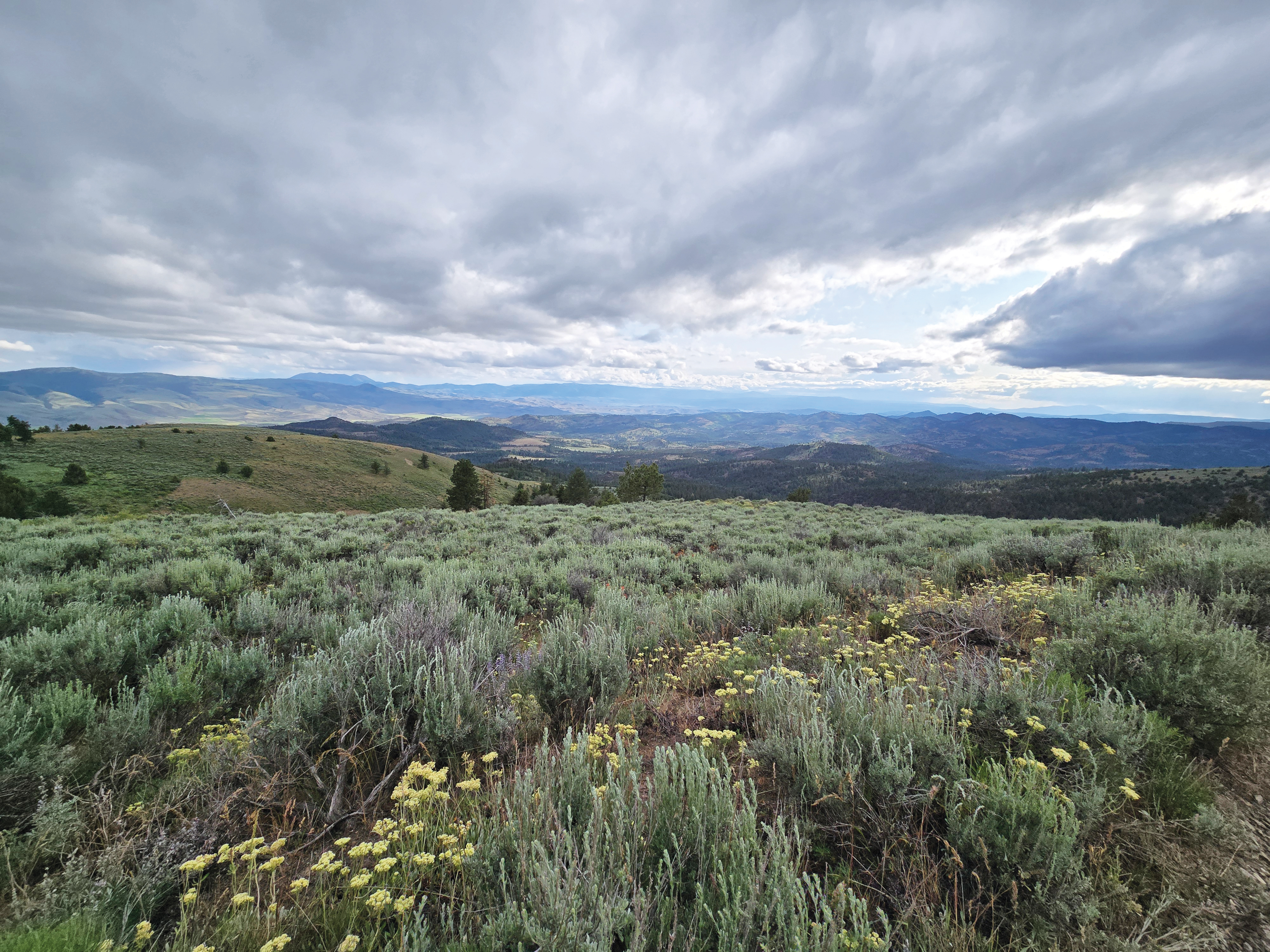Biz Buzz: Woman sells goat milk soap from Wallowa home
Published 10:00 am Monday, January 31, 2022

- Davi Parker of Wallowa takes her kids and goats on a backpacking trip in the high mountains. She said the family’s does and the wethers (castrated males) go camping with them during milking season. She makes soap from the milk for her Spilt Milk Soaps business.
WALLOWA — Davi Parker doesn’t cry over spilled milk; she makes soap out of it — as long as it’s from her goats.
In fact, some of her products look tasty, but her soap is strictly to clean the body.
“I do have some soaps that look like delicious cupcakes, but they certainly wouldn’t taste delicious,” the Wallowa owner of Spilt Milk Soaps said during a Jan. 27 interview. “Goat milk is amazing stuff, whether it is used topically or internally; just don’t eat goat milk soap.”
Parker has been making the soap from her own goats for six years. She started selling soap, bath and body items, lotions and shave bars — all from goat milk — about three years ago. She also makes some men’s beard-care products, including beard balm and oil.
“Those obviously don’t have goat milk,” she said.
The process
The soap is made using a combination of oils and lye, Parker said.
“I use ‘full milk’ for all of my soaps,” she said. “This means all of the liquid used to dissolve lye is full goat milk not diluted with water. I have a couple bars that are the exception — one uses half sea water we gathered from the ocean, and the other uses half beer.”
To make the soap, the dissolved lye is added to the oils and blended until emulsified.
“Then fragrance and color are added depending on the design I am trying to achieve,” Parker said. “The soap batter is then poured into molds, where it goes through the saponification process.”
That process is where the distribution of unsaturated and saturated fatty acid determines the hardness, aroma, cleansing, lather and moisturizing abilities of soaps.
“The batter heats up — it can get quite hot — and goes through what is called a gel phase,” she said. “Here, the batter begins to solidify and gets gel-like. It doesn’t have to go through gel to become soap, but the gel phase makes colors brighter and the bar ends up a bit creamier, in my opinion.”
She said not all people who make soap prefer to gel their soaps and others try to prevent it.
“I like mine to gel,” she said.
Parker said that after the soap has been in a mold for 18-24 hours it can be removed and sliced into bars, which then must cure for 4-6 weeks for any excess water to evaporate and the bars to harden fully and become more mild. She said that some soaps, such as castille soap, are cured for an entire year.
The soaps
While she doesn’t claim her soap does more than get a person clean, she recommends users research the benefits of goat milk for their skin.
“All of my soaps are special,” Parker said. “I have designed my recipe, through much trial and error, to be very cleansing without being drying and to add enough moisture back to your skin without leaving a greasy or residue feel.”
As for the scents she adds, that’s a bit random.
“I make whatever scents seem grand to me at the time; whatever makes me happy,” she said. “I have in the past, and plan to continue in the future, (used) some odd fragrances, such as bacon and dill pickle. Those make me laugh, so I like to make them.”
Marketing
At present, Parker has no storefront and sells her products online. She can be reached via email and the products viewed at her website or Facebook page.
Some of her products are available at shops in the county, such as the Flannel Lantern in Joseph.
“When I can, I also sell at various markets and vendor shows,” she said. “I sell mainly online. I offer free local delivery to most of Wallowa County. I also offer free shipping on orders over $40. Sadly, that keeps going up with the increase in postage rates.”
Who: Davi Parker
Where: Wallowa
What: Soap from goats milk
Email: spiltmilksoaps@frontier.com
Website: www.spiltmilksoaps.com
Also on Facebook: Split Milk Soaps






